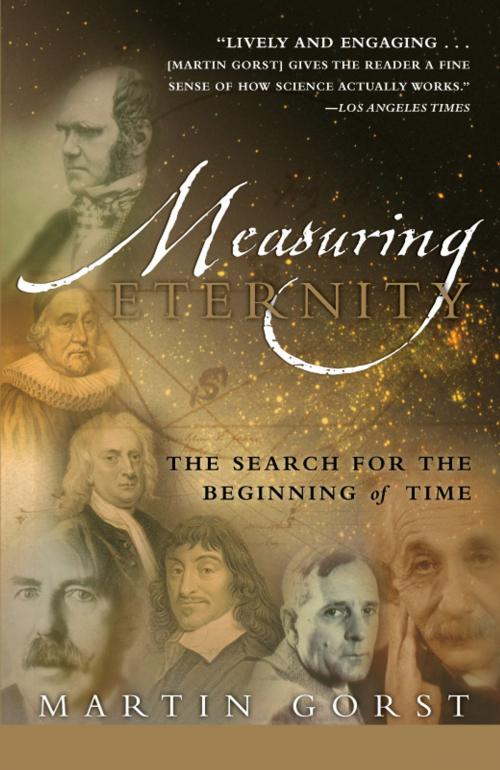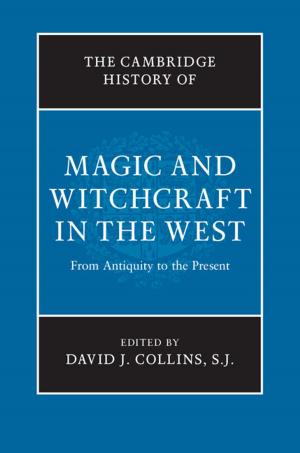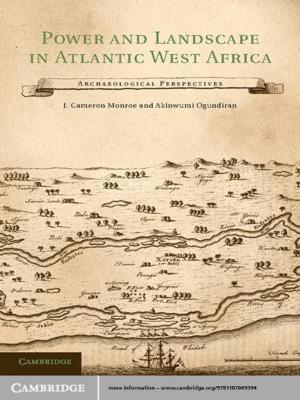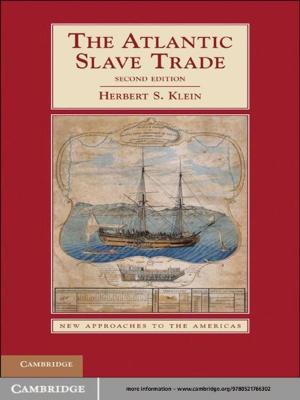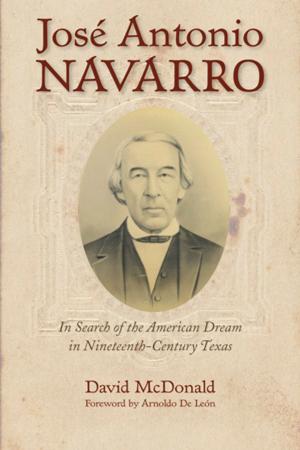Measuring Eternity
The Search for the Beginning of Time
Nonfiction, Science & Nature, Science, Physics, Time, Biography & Memoir, Reference, History| Author: | Martin Gorst | ISBN: | 9780767910989 |
| Publisher: | Crown/Archetype | Publication: | March 26, 2002 |
| Imprint: | Broadway Books | Language: | English |
| Author: | Martin Gorst |
| ISBN: | 9780767910989 |
| Publisher: | Crown/Archetype |
| Publication: | March 26, 2002 |
| Imprint: | Broadway Books |
| Language: | English |
The untold story of the religious figures, philosophers, astronomers, geologists, physicists, and mathematicians who, for more than four hundred years, have pursued the answer to a fundamental question at the intersection of science and religion: When did the universe begin?
The moment of the universe's conception is one of science's Holy Grails, investigated by some of the most brilliant and inquisitive minds across the ages. Few were more committed than Bishop James Ussher, who lost his sight during the fifty years it took him to compose his Annals of all known history, now famous only for one date: 4004 b.c. Ussher's date for the creation of the world was spectacularly inaccurate, but that didn't stop it from being so widely accepted that it was printed in early twentieth-century Bibles. As writer and documentary filmmaker Martin Gorst vividly illustrates in this captivating, character-driven narrative, theology let Ussher down just as it had thwarted Theophilus of Antioch and many before him. Geology was next to fail the test of time. In the eighteenth century, naturalist Comte de Buffon, working out the rate at which the earth was supposed to have cooled, came up with an age of 74,832 years, even though he suspected this was far too low. Biology then had a go in the hands of fossil hunter Johann Scheuchzer, who alleged to have found a specimen of a man drowned at the time of Noah's flood. Regrettably it was only the imprint of a large salamander.
And so science inched forward via Darwinism, thermodynamics, radioactivity, and, most recently, the astronomers at the controls of the Hubble space telescope, who put the beginning of time at 13.4 billion years ago (give or take a billion). Taking the reader into the laboratories and salons of scholars and scientists, visionaries and eccentrics, Measuring Eternity is an engagingly written account of an epic, often quixotic quest, of how individuals who dedicated their lives to solving an enduring mystery advanced our knowledge of the universe.
The untold story of the religious figures, philosophers, astronomers, geologists, physicists, and mathematicians who, for more than four hundred years, have pursued the answer to a fundamental question at the intersection of science and religion: When did the universe begin?
The moment of the universe's conception is one of science's Holy Grails, investigated by some of the most brilliant and inquisitive minds across the ages. Few were more committed than Bishop James Ussher, who lost his sight during the fifty years it took him to compose his Annals of all known history, now famous only for one date: 4004 b.c. Ussher's date for the creation of the world was spectacularly inaccurate, but that didn't stop it from being so widely accepted that it was printed in early twentieth-century Bibles. As writer and documentary filmmaker Martin Gorst vividly illustrates in this captivating, character-driven narrative, theology let Ussher down just as it had thwarted Theophilus of Antioch and many before him. Geology was next to fail the test of time. In the eighteenth century, naturalist Comte de Buffon, working out the rate at which the earth was supposed to have cooled, came up with an age of 74,832 years, even though he suspected this was far too low. Biology then had a go in the hands of fossil hunter Johann Scheuchzer, who alleged to have found a specimen of a man drowned at the time of Noah's flood. Regrettably it was only the imprint of a large salamander.
And so science inched forward via Darwinism, thermodynamics, radioactivity, and, most recently, the astronomers at the controls of the Hubble space telescope, who put the beginning of time at 13.4 billion years ago (give or take a billion). Taking the reader into the laboratories and salons of scholars and scientists, visionaries and eccentrics, Measuring Eternity is an engagingly written account of an epic, often quixotic quest, of how individuals who dedicated their lives to solving an enduring mystery advanced our knowledge of the universe.
